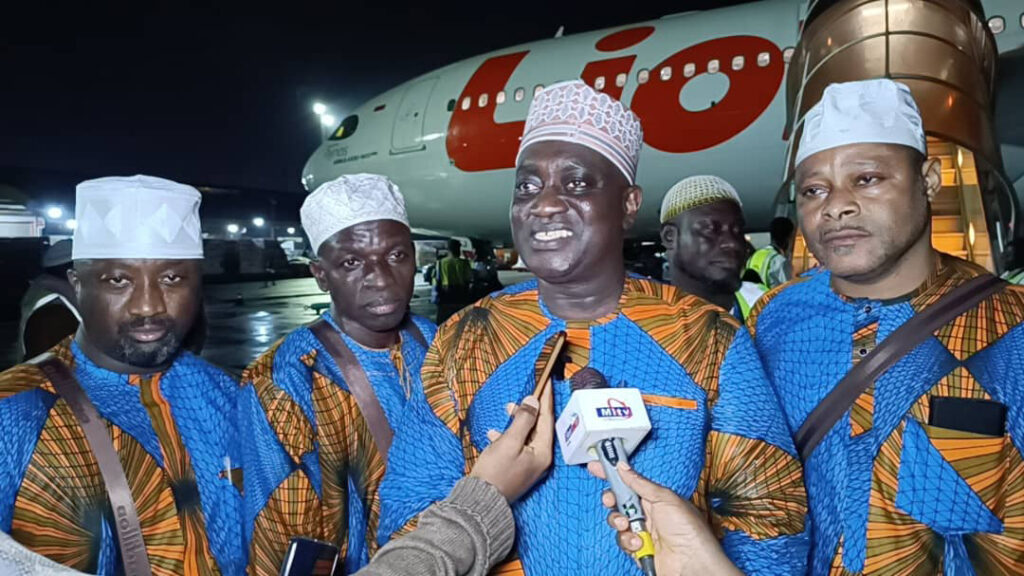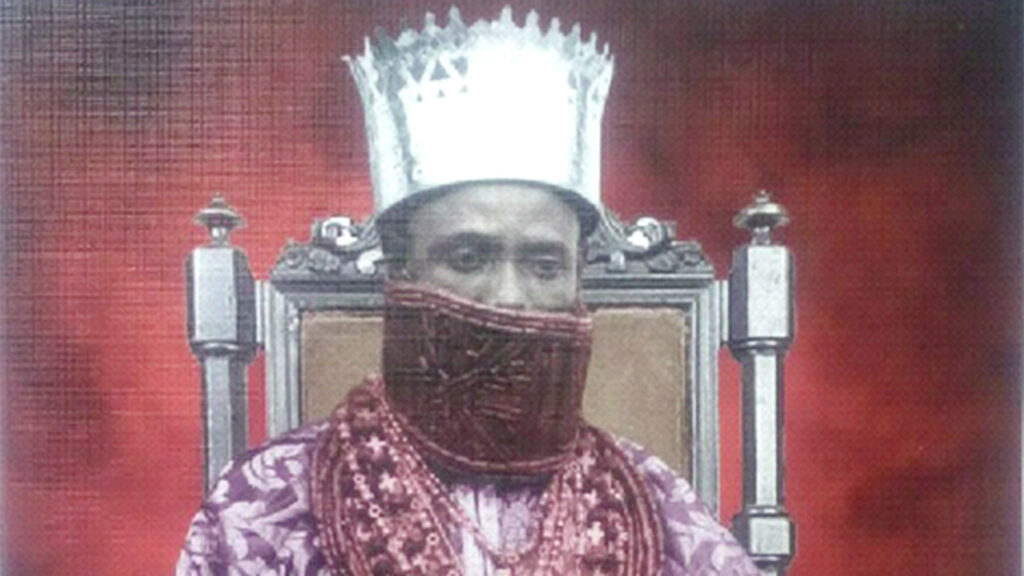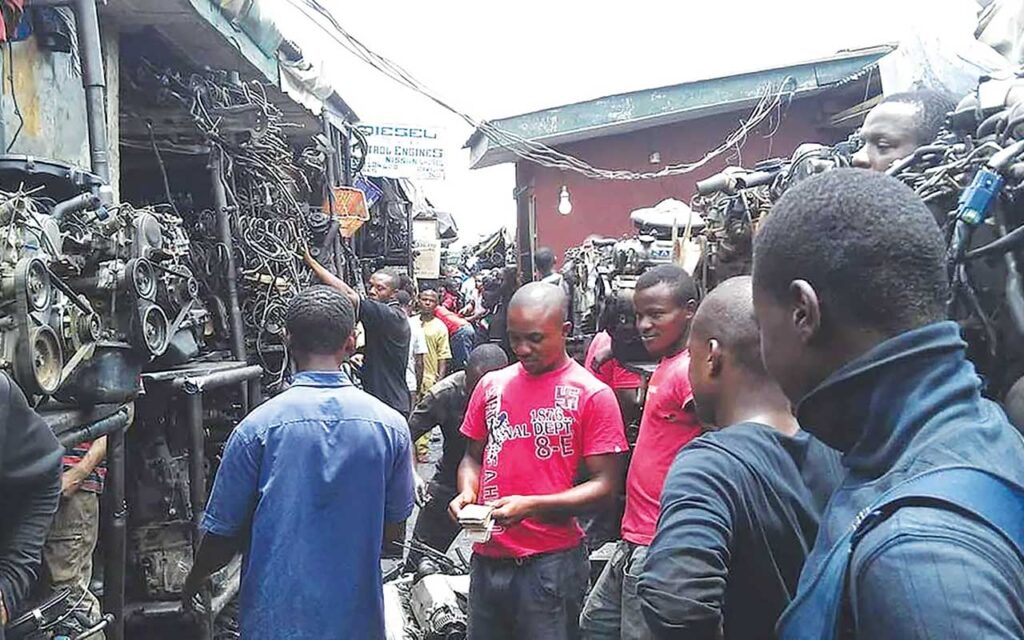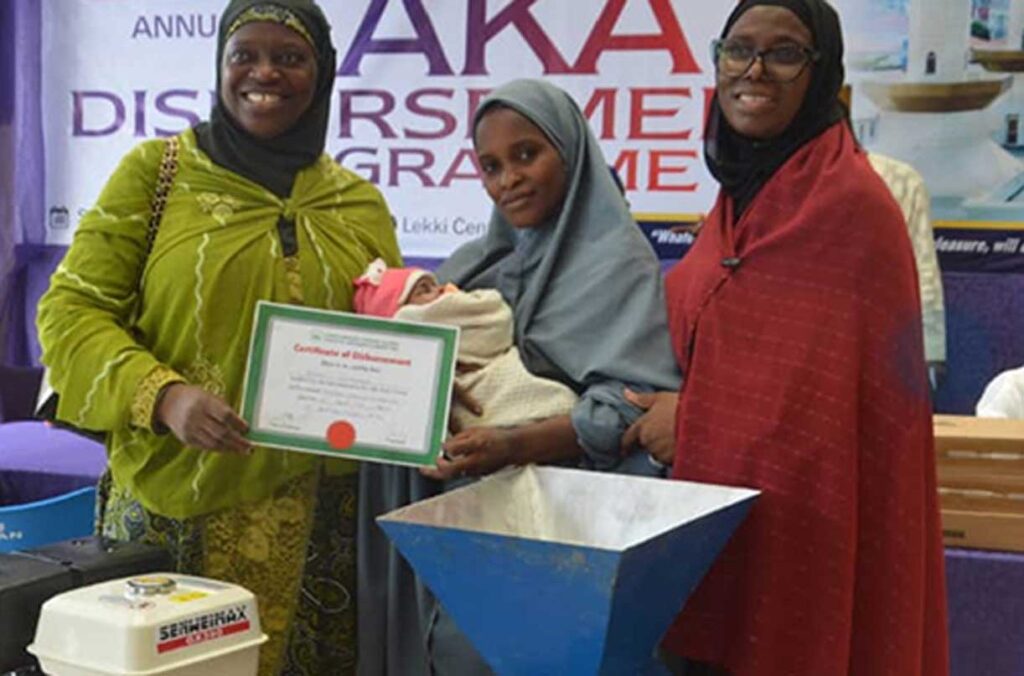
When the Western Nigeria Security Network, code named Amotekun Corps, was set up, it was with a lot of fanfare and optimism that it would help tame the hydra-headedsecurity challenge the Southwest region was experiencing.
Four years on, however, the regionis still grappling with insecurity on many fronts. In fact, critical stakeholders believe that there has been a surge in crime and criminality within the region in recent times.
For instance, this much was confirmed during a recent security summitfor traditional rulers and critical stakeholders in the region convened by the Ooniof Ife, Oba Adeyeye Ogunwusi.
The summit had been organised following increasing concerns about rising cases of killings, kidnappings and other crimes across the six states within the region.
In its communiqué,the summit observed that there have been organised systematic attacks on traditional rulers and eminent sons and daughters of Yoruba land by suspected herders.
And the apprehension of the monarchs is not unfounded. In the past few months, Ekiti State has witnessed the killing of two traditional rulers, the Onimojo of Imojo-Ekiti, Oba Olatunde Samuel Olusola and Oba David Babatunde Ogunsakin, Elesun of Esun-Ekiti. This was besides the case of primary school pupils who were kidnapped along with their teachers in Ekiti too.
There were also the kidnap incidents at Otu, Saki and Okaka in Oke-Ogun area of Oyo state.
Similarly, the Lagos State chairman of the Peoples Democratic Party (PDP), Mr. Phillip Aivoji and some others were kidnapped at Ogere, Ogun State along the Lagos-Ibadan Expressway. Unfortunately, one of the victims, a woman, met her untimely death during a shoot-out between the kidnappers and the police who were attempting to rescue the victims from the kidnappers.
The Amotekun Corps was launched on January 9, 2020 in Ibadan, Oyo State. The idea had first been muted at an earlier summit convened by the Development Agenda for Western Nigeria (DAWN) in June 2019, where it was agreed that the corps was necessary.
The creation of the security network sparked outrage among political leaders in other regions who argued that a ‘state-owned’ security outfit was unconstitutional and illegal. They expressed fears that it may be deployed by the governors to victimise other ethnic groups living in the region.
The immediate past Attorney General of the Federation, Abubakar Malami, then stated that “no state government, whether singly or in a group, has the legal right and competence to establish any form of organisation or agency for the defence of Nigeria or any of its constituent parts.”
The region’s governors, however, refused to back out of their resolve to form a regional security network, positing that Amotekun would complement the Nigeria Police in fighting crime.
Weeks after, the federal government agreed to the creation of Amotekun, after the governors met with the then Inspector General of Police, Adamu Mohammed to agree on its mode of operation.
However, it was not until two months after the security outfit was launched by the governors before their state Houses of Assembly gave legal backing to the outfit. The Oyo, Osun, Ondo, Ogun and Lagos state Assemblies passed the Amotekun bill on the same day, March 3, 2020.

Following the move by the state Assemblies, the late Rotimi Akeredolu, former Ondo state governor, was the first to sign the bill into law on March 4, 2020 among the six governors. Other governors within the region followed suit by signing the Amotekun bill into law.
Although, the Ekiti state House of Assembly had earlier passed its version of the bill on February 14, the then governor, Kayode Fayemi, did not sign it into law until March 16.
On another hand, theLagos state Governor, Babajide Sanwo-Olu backed out, as the bill was never signed into law in Lagos.
Insecurity Persists
Despite the presence of the regional security outfit, the Southwest has continued to experience multiple dimensions of violence and criminality.
According to the Council on Foreign Relations’ Nigeria Security Tracker (NST) – a website that tracks violent incidents, between January and May 31, 2022,165 deaths were recorded from 122 incidents of violence that occurred in the region.
Also, statistics byBeacon, a consulting firm,revealed that no fewer than 8372 people lost their lives to security challenges in Nigeria in 2021.A disaggregation of the data regionally, showed that the Southwest recorded 441 fatalities.
Similarly, the Nigeria Security Tracker (NST) of the Council onForeign Relations, revealed that in 2021 in the Southwest, no fewer than 145 persons were kidnapped while 178 persons were killed by non-state actors.
Weighing in on the conversation, the chairman, Citizenship Civic Awareness Centre, Adeola Soetan, observed that crime and general insecurity is a reflection of worsening economy situation in the country. This, to him, primarily draws many people into crime so as to meet their basic needs of life, that is food, clothe and shelter.
“So, any serious attemptby government to address general insecurity must first focus on improving the economy, and spreading the national wealth equitably to all people, especially youths. By doing this, they would have access to basic things of life, and be able to create wealth by themselves through employment and job creation opportunities to become self-fulfilled and proud citizens of the nation.
“If government doesn’t guarantee this conducive environment for existence and survival, it means government is creating crime for the disillusioned citizens to commit crime on behalf of government. Prevention is better than cure, as we all say,” he said.
Speaking specifically, Soetan said that rising insecurity in the region can’t be separated from the rising insecurity in the country, because crime has no frontier.
“Even if the crime profiling indicates the preponderance of certain groups, like the many violent local and foreign Fulani herdsmen that initially started kidnapping and killing of people because they want to feed their cattle on farmers’ crops and rural village.Other criminal groups in other ethnic groups later joined the free trade of kidnapping for ransom because it looks more lucrative with lesser risk, than crimes like armed robbery, house breaking and the likes;just like many people across tribes have joined the yahoo yahoo financial crime too,” he added.
Soetan noted that Amotekun was a child of necessity as a quasi-security outfit to complement the poorly equipped and overstressed police force.
“Kudos to the late governor of Ondo state, Rotimi Akeredolu and his Oyo state counterpart, Seyi Makinde, who both took the bull by the horn and made the Amotekun idea a reality even when many Southwest politicians, including President Bola Tinubuwere hero-worshipping former President Muhammadu Buhari, and defending his lapses and provincial bias in favour of the killer Fulani herdsmen whose invasion of Yoruba Southwest forests, was the core reason for the establishment of Amotekun,” Soetan stated.
He, however, argued that Amotekun is poorly equipped, poorly trained and underfunded. He alsosaid its constitutional scope of operation was deliberately sabotaged in terms of carrying sophisticated arms bythe Buhari regime, through the then AGF, Malami and the ex-IGP, Mohammed.
“A badly armed complementary Amotekun can’t do better thanthe police force. And in as much as the economy continues to fail, and more criminals are produced by government, including the southwest government, Amotekun’s serious limitations will continue to be exposed.
“The security summit organised by traditional rulers in the Southwest is more of an indictment on them than on the Amotekun quasi security force. How many kings in Yoruba land took Amotekun seriously and spoke in its favour when the Buhari regime was running riot against its formation and people like President Tinubu were not totally committed to it, playing power negotiation game at the risk of their fellow citizens’ lives.Now that traditional rulers have become main targets of bandit attacks, let’s hope they will do the needful,” Soetan stated.
Also commenting, a Peace and Security expert, Olubukola Ademola-Adelehin, said that the controversy over the legality and the rights to bear arms were hurdles to Amotekun’s operations since its formation as a regional security institution.
She noted, however, that this has not invalidated the need it meets in providing security in communities in the region, except Lagos state.
“Amotekun, unfortunately, is not a replacement for the Nigeria Police nor can it take the place of a proper community-security partnership structure needed to holistically address insecurity in the states.
“While the Amotekun can be strengthened to better respond to insecurity in its area of operations, especially in the wake of governments leaning toward establishing state police, the reality is that the problem of insecurity in Nigeria goes beyond policing,” she said.
Ademola-Adelehin maintained that a broken social contract between the people and government, high poverty rate, weak governance, corruption, high level of unemployment, youth restiveness and hopelessness, among other issues, should be addressed to reduce the propensity for crime and breaches of security in the polity.
She stressed that the government must step up to do its part in checking rising insecurity,otherwise, the Amotekun, NPF, or even the military will remain incapacitated.
A resident of Ondo State, Jumoke Abiola, said that though the operatives have contributed their bits in the fight against insecurity in the South West, in a whole security has not improved within the region since the security outfit was established.
“I will say that insecurity has degenerated within the south west region since the outfit was created. One might not solely but the blame on the regional body considering the scope of their operation and insecurity has escalated generally in Nigeria.
“Nonetheless, with the birth of the security outfit, one would have expected improved security within the region, especially working with other security outfits within the region. Even if they are not well equipped, they should have been providing the armed security agencies within the needed community intelligence.
“If they have been providing community intelligence, many be some of the crimes being recorded in the region would have been averted. So, Amotekun was meant to complement the other armed national security bodies but with the spate of insecurity in the south west, I do not think they provided that,” Abiola said.
The Executive Director, Emergency and Risk Alert, Mr. Gbenro Olajuyigbe noted that the Security Summit recently held by the South West traditional rulers is quite a step forward even though belated.
He observed that their sudden interest could be linked to the current spike in the kidnapping incidence, particularly the sprees of regicidal killings of traditional rulers, their wanton abduction and the tragic decimation of traditional institution in Yoruba land.
Olajuyigbe observed that four years ago, the South West governors held similar summit in Ibadan on the same security issue.
“The major output of that summit was the decision on the formation of Amotekun. Of the six governors that took the decisions, only two governors saw through the establishment of Amotekun. They were, the late Governor Rotimi Akeredolu of Ondo state, who was then the chairman of the South West Governors Forum and Governor Seyi Makinde of Oyo State.
“Others genuflected and chickened out for political expediency. It could be argued that those four governors were just playing politics with security situations in the region. I stated these facts so that one can fairly contextualize the performance of Amotekun in the last four years.
“Amotekun with all its challenges, including initial resistance to its formation by the Buhari’s federal government, paucity of resources, inadequate financing, training and region-wide commitment has performed creditably well in the two states of Ondo and Oyo. It could have been more effective in the region if other states were as committed as the two states.
“Nevertheless, with the emerging dynamics there is a need for review of strategy. Hence, the security summit held by the traditional rulers, though not sufficient in scope and content, was a paradigm shift.
“The urgency and expediency of countering the raging cruel crimes and intrusion of extreme violence in the region cannot be overemphasized.
It must be acknowledged that the problem is national with high nationwide threat level. While the Federal Government is yet to put in place an effective strategy for approximate response, the South West region should support and improve on the activities of Amotekun by strengthening security risk communication – to responders and vulnerable populations.
“This includes; putting in place structure and process for communication of vulnerability, risk, early warning and well thought through actions.”
Olajuyigbe, nonetheless, said that it must be acknowledged that the problem is national with high nationwide threat level.
“While the Federal Government is yet to put in place an effective strategy for approximate response, the South West region should support and improve on the activities of Amotekun by strengthening security risk communication – to responders and vulnerable populations.
“This includes; communication of vulnerability, risk, early warning and well thought through actions. Some of the quickest things to do are:
firstly, set up a team of experts for rapid assessment of situations. Secondly, establish early warning monitoring centres in all local governments with professional monitors and Alert Operators/ senders within Amotekun formation.
“Thirdly, establish response centres with mandate for countering violent crime and function as rescue, relief and recovery operators
It must also be noted that the type of security challenges we have, calls for inclusive multi-level and multi-stage approach that is rich in wider national contextual perspectives before we can adequately address our security concerns,” Olajuyigbe argued.













